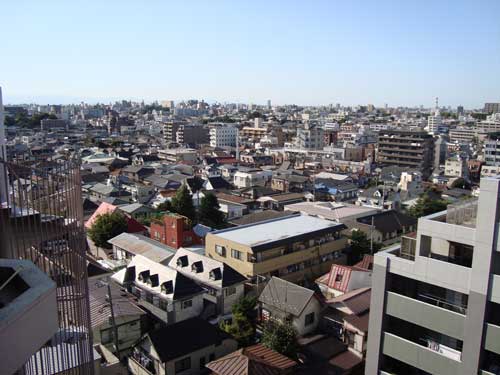
This week is Japan’s Obon festival, a Japanese Buddhist custom of honoring ancestors’ spirits. Mid-August is a time when many Japanese take vacation, some to visit their home towns and others simply to get away or take a rest. Obon is a 500 year tradition that includes offerings in home altars, special dances and lantern festivals.
The date varies by region and by neighborhood. Tsukudajima had its festival in mid-July. The shift in the timing of the Obon festival is discussed by Nagai Kafū in his Tidings from Okubo. Kafū laments the change from fall to summer, from lunar to solar calendars, and from agricultural Edo to modern “careless” Tokyo.
After three days of rain, autumn suddenly deepens. Not waiting for the night, the crickets sing their loudest under the verandas. Their singing somehow brings to mind a Japanese wife of old, sad and yet alluring, at work on her husband’s clothes in the dim light of a paper lantern. . . . Under the old lunar calendar the festival of the dead came at the beginning of autumn. Every unfilial son, however profligate and however forgetful of home he might have been on ordinary occasions, must have thought of his dead mother and father in the sadness of the autumn dews. But now we have imitated the West and adopted the solar calendar, and the festival comes just after the June rains or toward the middle of the summer. The sadness with which the dead ought to be remembered is wholly lacking. The morals of a country are in danger when they are cut loose from the beauty of its soil and its seasons. The makers of our new age have been careless in many ways.” (p 238, Edward Seidensticker’s Kafū the Scribbler: The Life and Writing of Nagai Kafū, 1879-1959, Stanford University Press, 1965).

